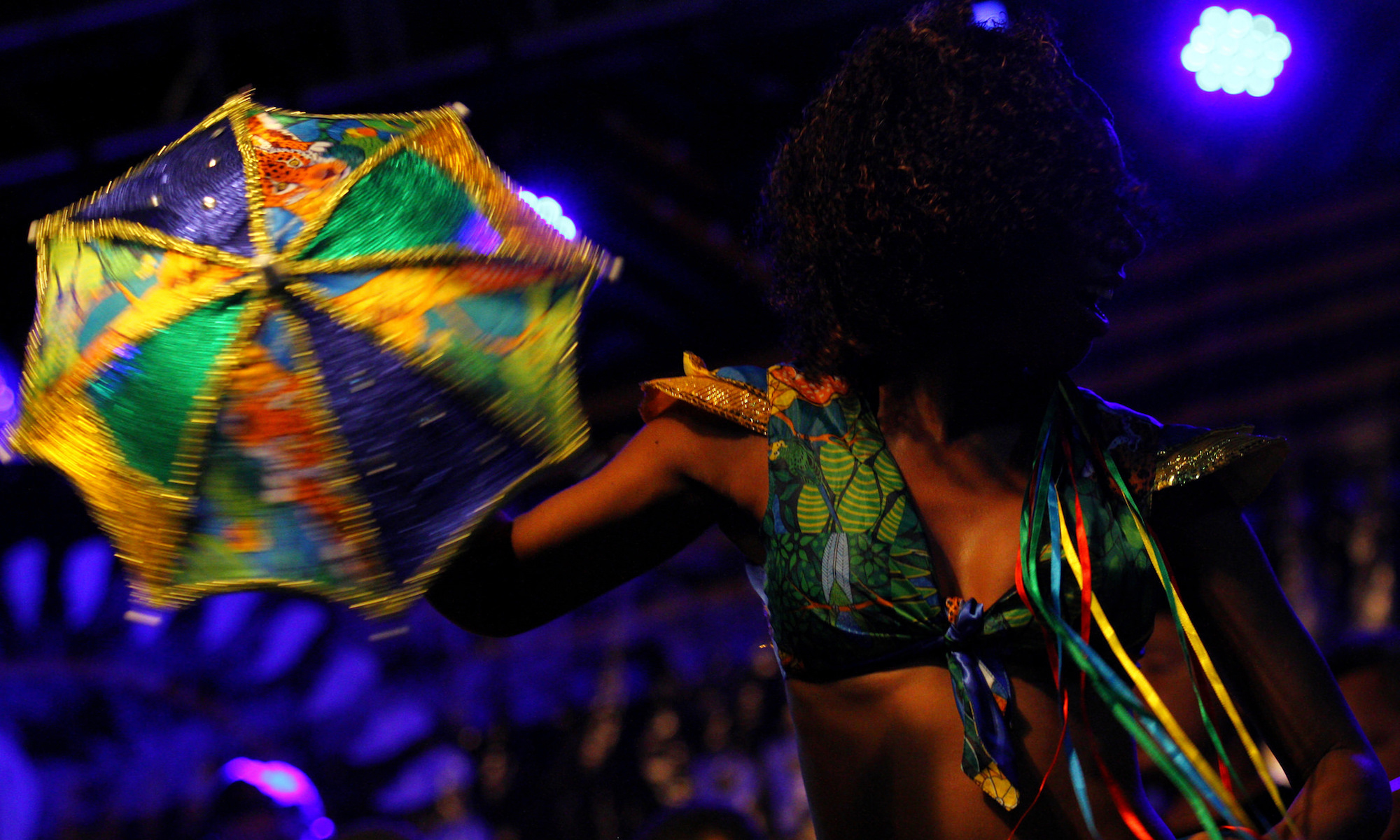During my fieldwork, I conducted interviews with the following people, all of whom are involved in frevo in some way: dancers, scholars, choreographers, performers, historians, teachers—often many of these things at once. Here I list the people I interviewed with a short snippet about each of them and their role in the frevo community.

Alisson Lima is a dancer and percussionist with Instituto Brincante who practices both frevo and capoeira, among other Brazilian popular dances. I attended his frevo & capoeira class at Instituto Brincante and he spoke to me about his experiences learning both frevo and capoeira growing up in Recife. He is working on a choreographic project that explores the historical, cultural, and kinesthetic connections between the two forms.
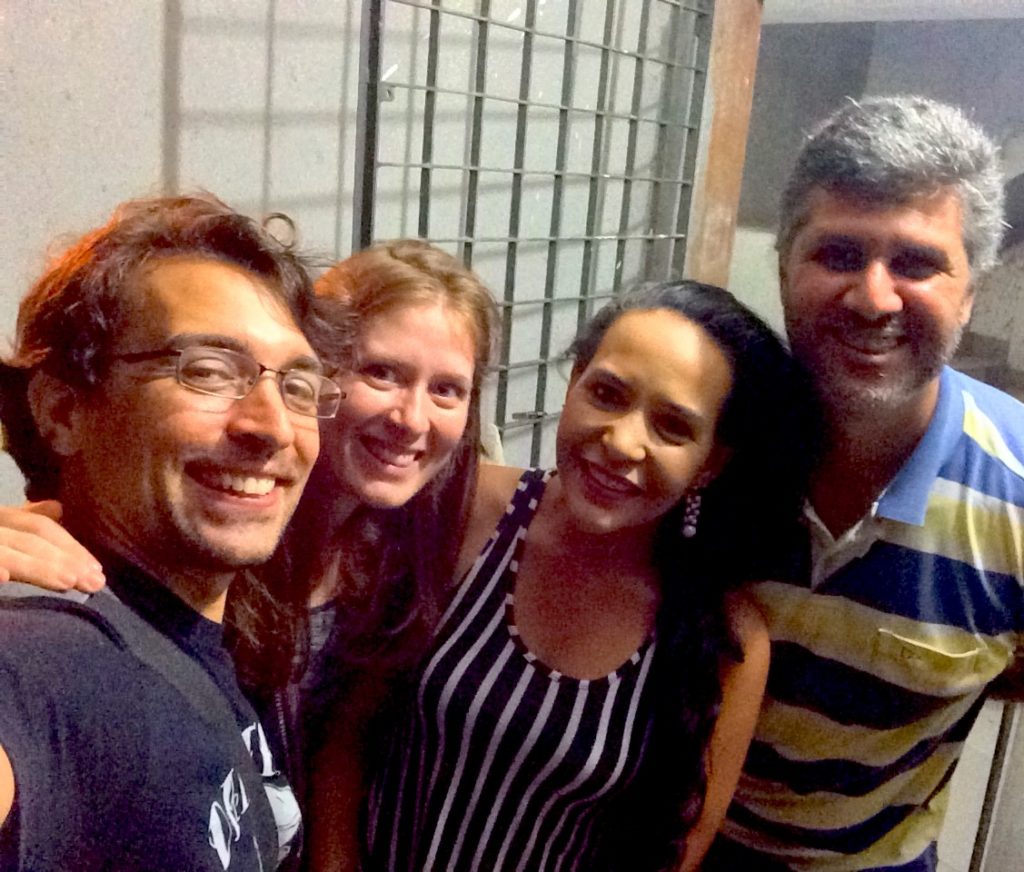
Eduardo Araújo and Lucélia Albuquerque from Guerreiros do Passo offered great insight into their group and their commitment to ensuring the continued legacy of Mestre Nascimento do Passo. We met at their new headquarters in the neighborhood of Encruzilhada, down the street from Praça do Hipódromo, where the group holds its weekly classes.
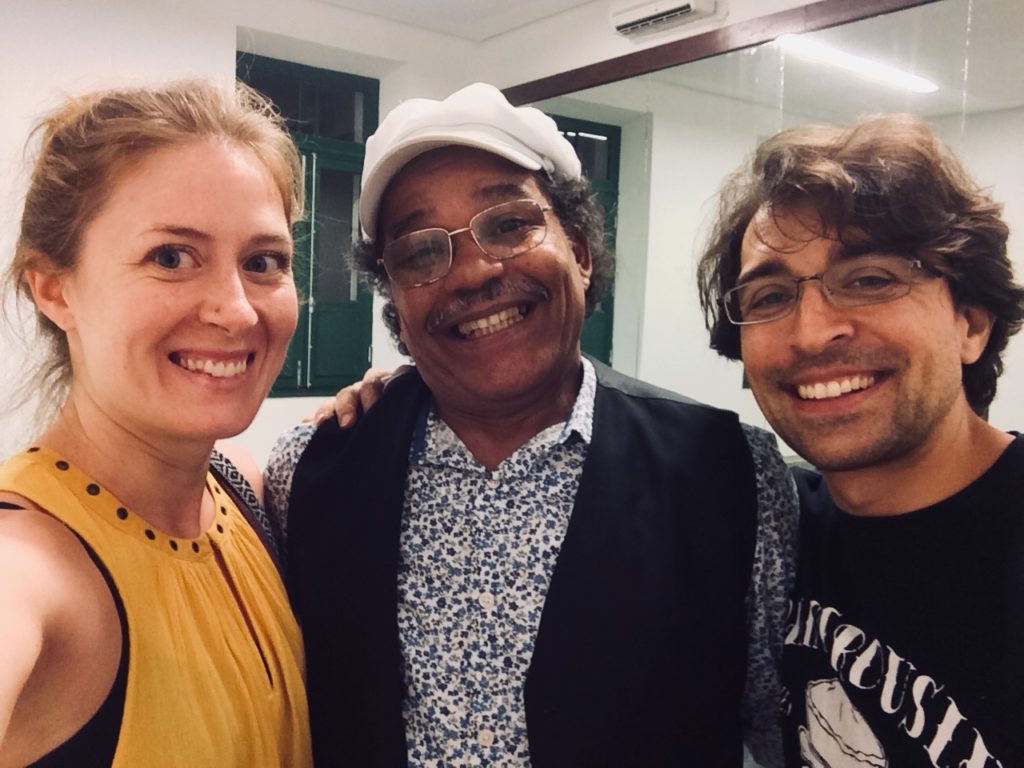
Ferreirinha do Frevo spoke passionately about historical and current cultural context of frevo in Recife and explained some of the “darker” history of frevo, indicating that frevo is not all smiles and colorful umbrellas. He talked about his project, “Frevosofia,” which looks at various philosophical issues in the world of frevo.
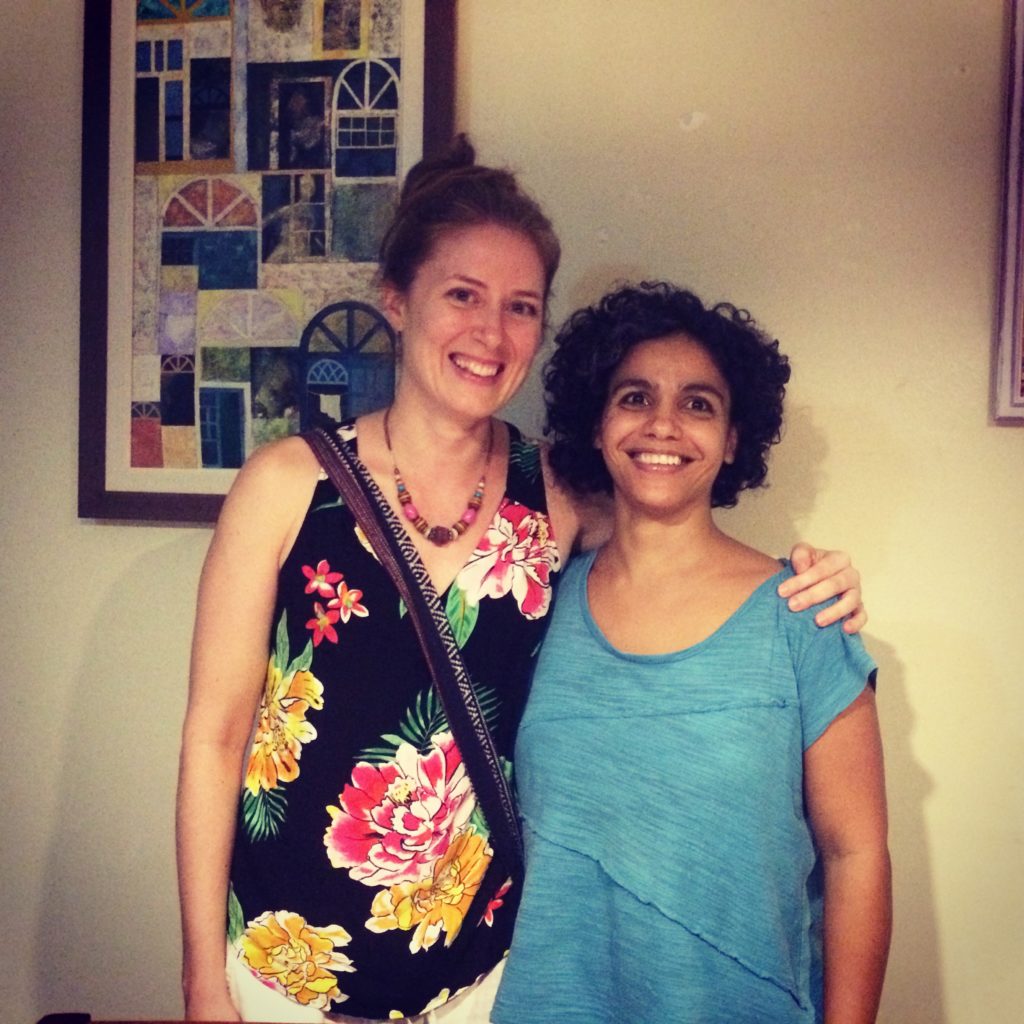
Valéria Vicente comes to frevo as a foliã (someone who enjoys carnival and dances frevo in the streets) and is also a dance artist and scholar who has created works and written books about frevo. Her scholarship and artistic work has been very informative for me, as she touches on themes of resistance as well as the somatic experience of dancing frevo.
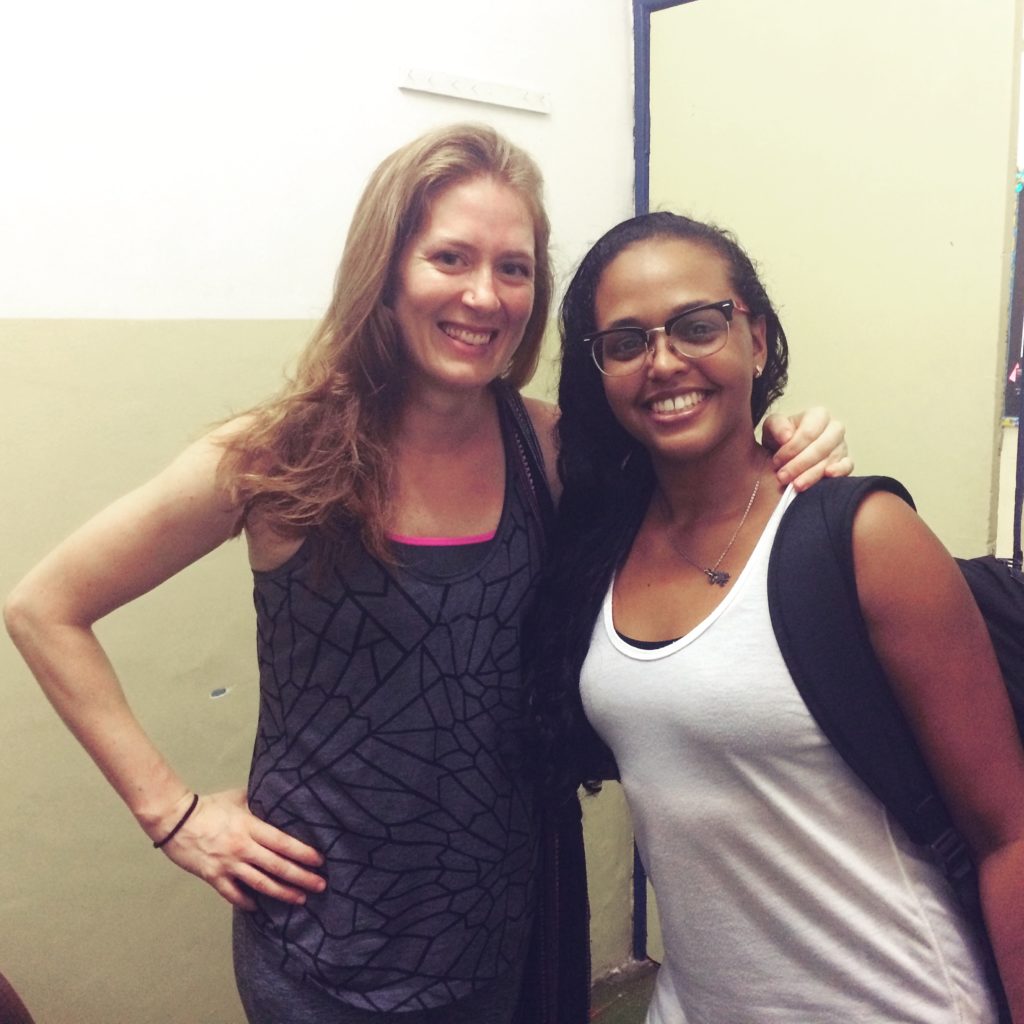
Bruna Renata is the director of the Companhia do Frevo de Recife and practices many different dance styles besides frevo, including ballet, jazz, dança de salão (ballroom/partner dancing), and more. She offered a unique perspective on modern influences on frevo and innovation within this genre of dance.
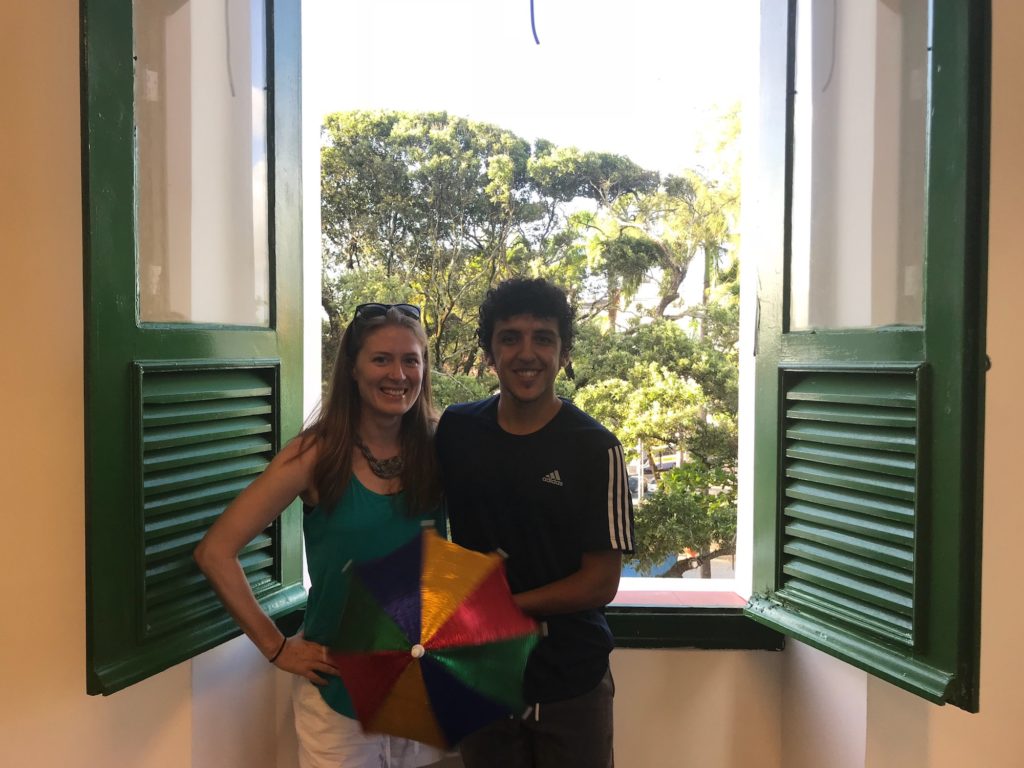
Júnior Viégas directs his own Stúdio Viégas and is my frevo teacher at Escola Municipal de Frevo. He is an artist who works primarily within the frevo genre—he is extremely active in the frevo world and he talked to me about his experiences directing his own company, teaching at Escola Municipal, and offering “vivências” for visitors at the Paço do Frevo (the museum dedicated to frevo).
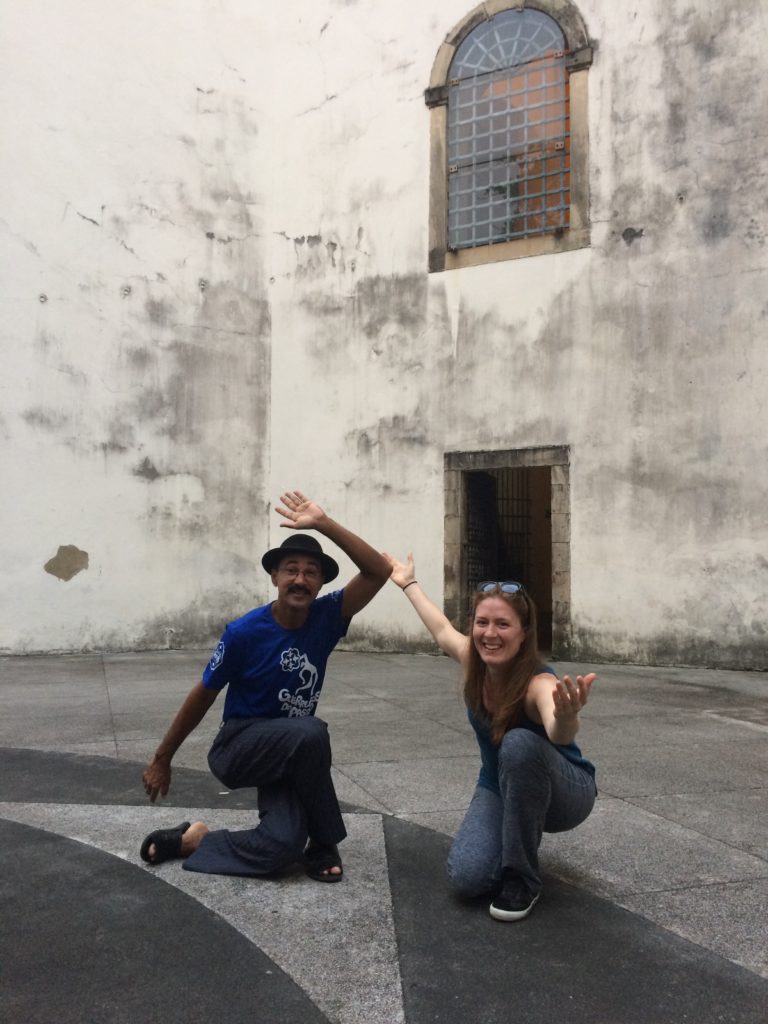
Laércio Olímpio comes to frevo as a folião and is also our professor with Guerreiros do Passo. He demonstrates inspiring creativity and ability in his dancing that brings a certain carnival “spirit” to the space. He spoke to me about the differences between the frevo of previous generations and frevo today, offering great perspective on what has changed and what has stayed the same.
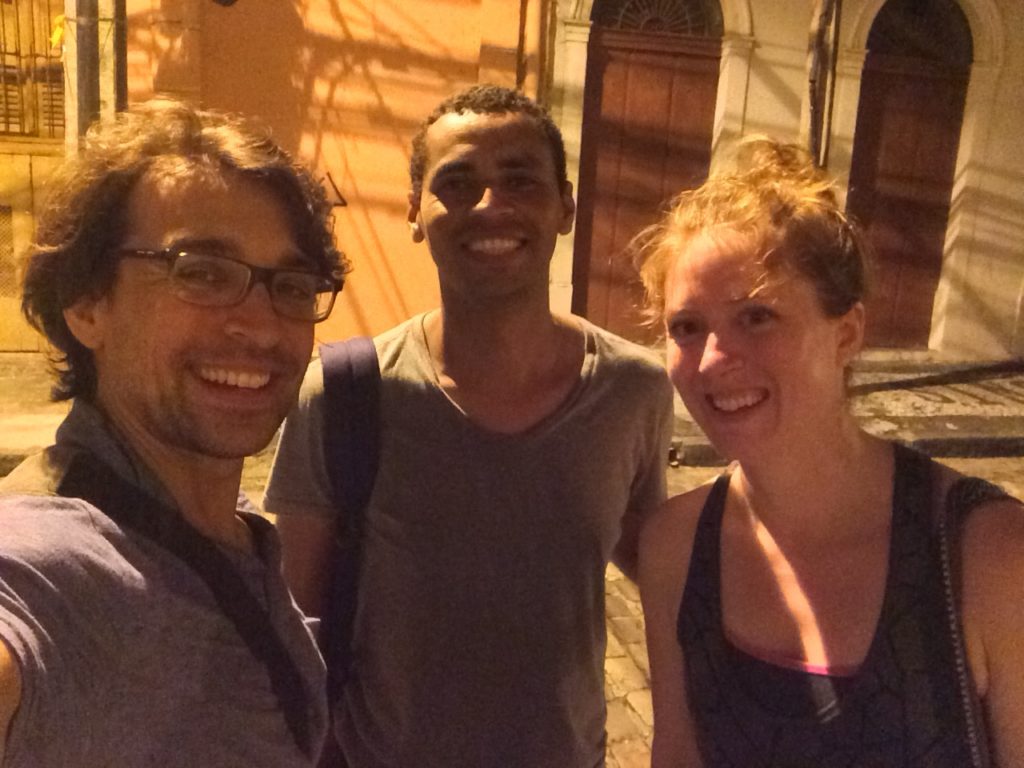
Fabinho Soares spoke to me about cavalo marinho and maracatu rural from Zona Da Mata. Fabinho is one of the best dance teachers I’ve ever had because he combines historical/cultural/political context with the nuances of the movement and he teaches us how to respect these traditions. He offers an important perspective for better understanding the multiplicity of cultural expressions in Pernambuco.
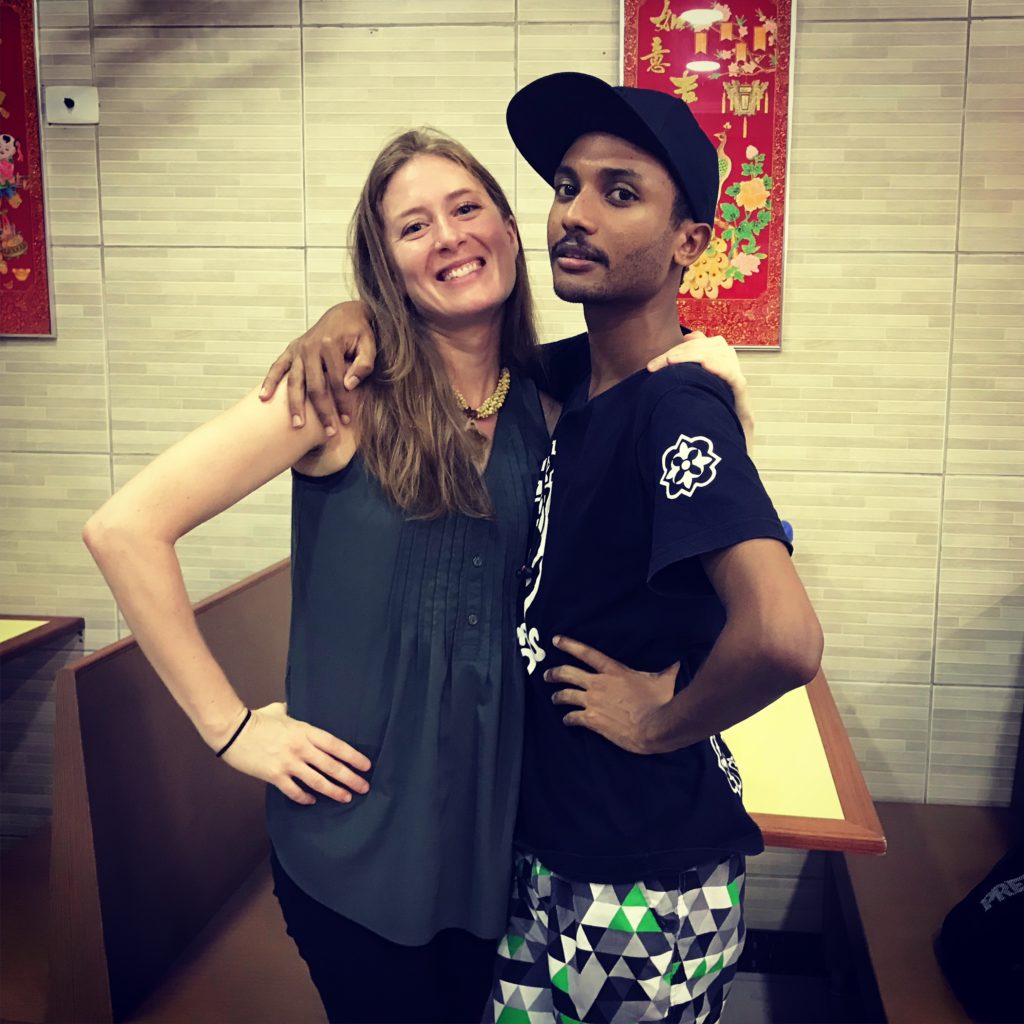
Edson Vogue is a member of Guerreiros do Passo and is also the innovative creator “frevogue,” a hybrid between frevo and vogue dance. Edson offered a perspective on frevo from the LGBT community and discussed how frevo can be mixed with other urban dance forms to challenge traditional notions of what the dance is and can be.
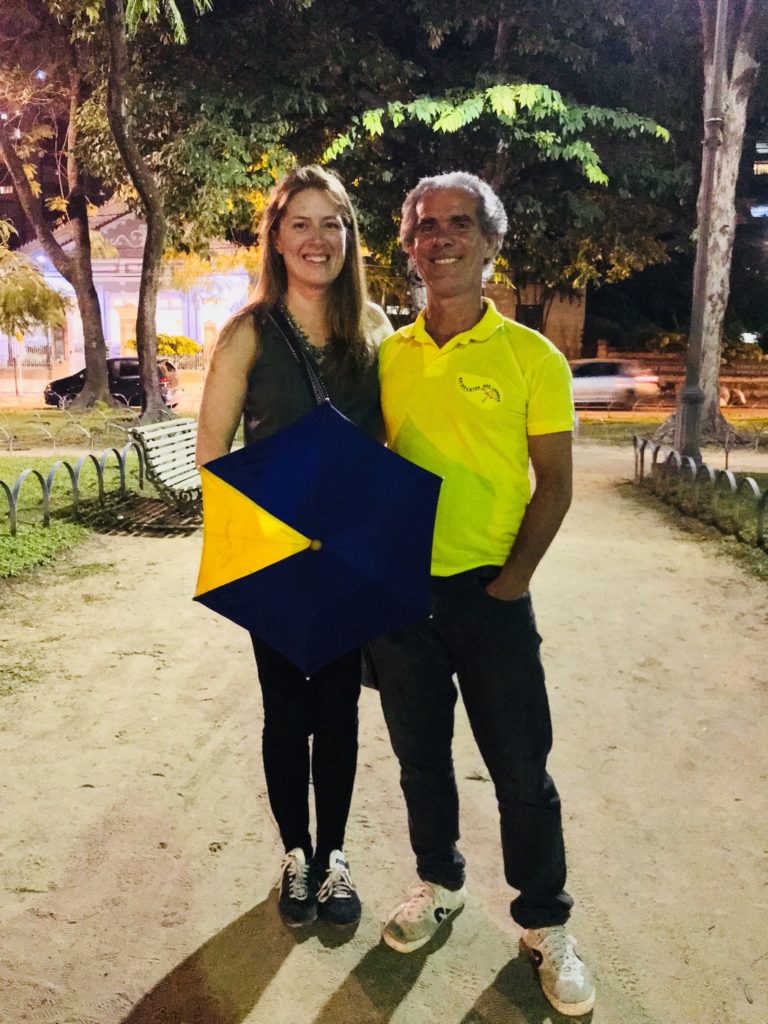
Wilson Aguiar is the leader and co-founder of Brincantes das Ladeiras (BDL) of Olinda who has many years of experience with both frevo and capoeira. He spoke to me about his philosophy about teaching frevo (including his “BDL Method”) and the connections (and dis-connections) between frevo and capoeira. He also showed us his genius invention: a rustless and unbreakable sombrinha with a power grip handle! You can even swap out the fabric to match your costume 🙂
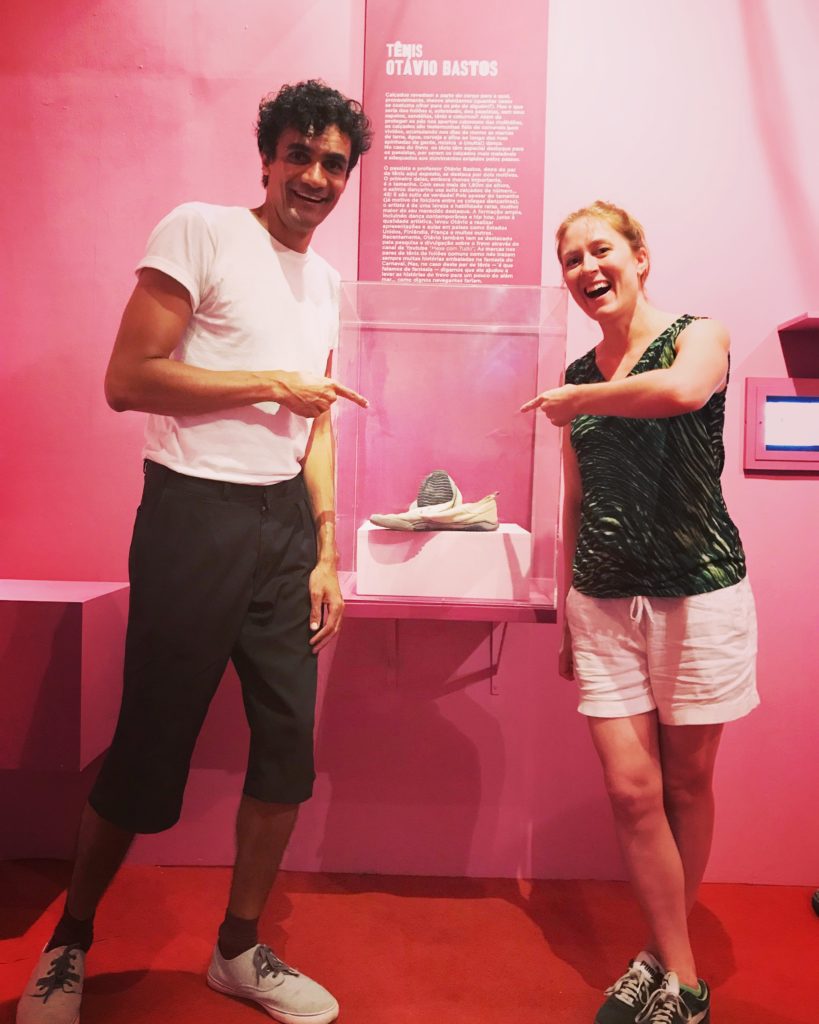
Otávio Bastos is a well-known frevo dancer and teacher who has created the popular YouTube channel, Mexe com Tudo, dedicated to all things frevo. We spoke about his experiences dancing with Nascimento do Passo and at Instituto Brincante in São Paulo, his frevo cinquentão class at Paço do Frevo, and his experiences traveling the world to teach and spread the love of frevo. He posed with me in front of his legendary frevo tennis shoes on display at Paço do Frevo!
